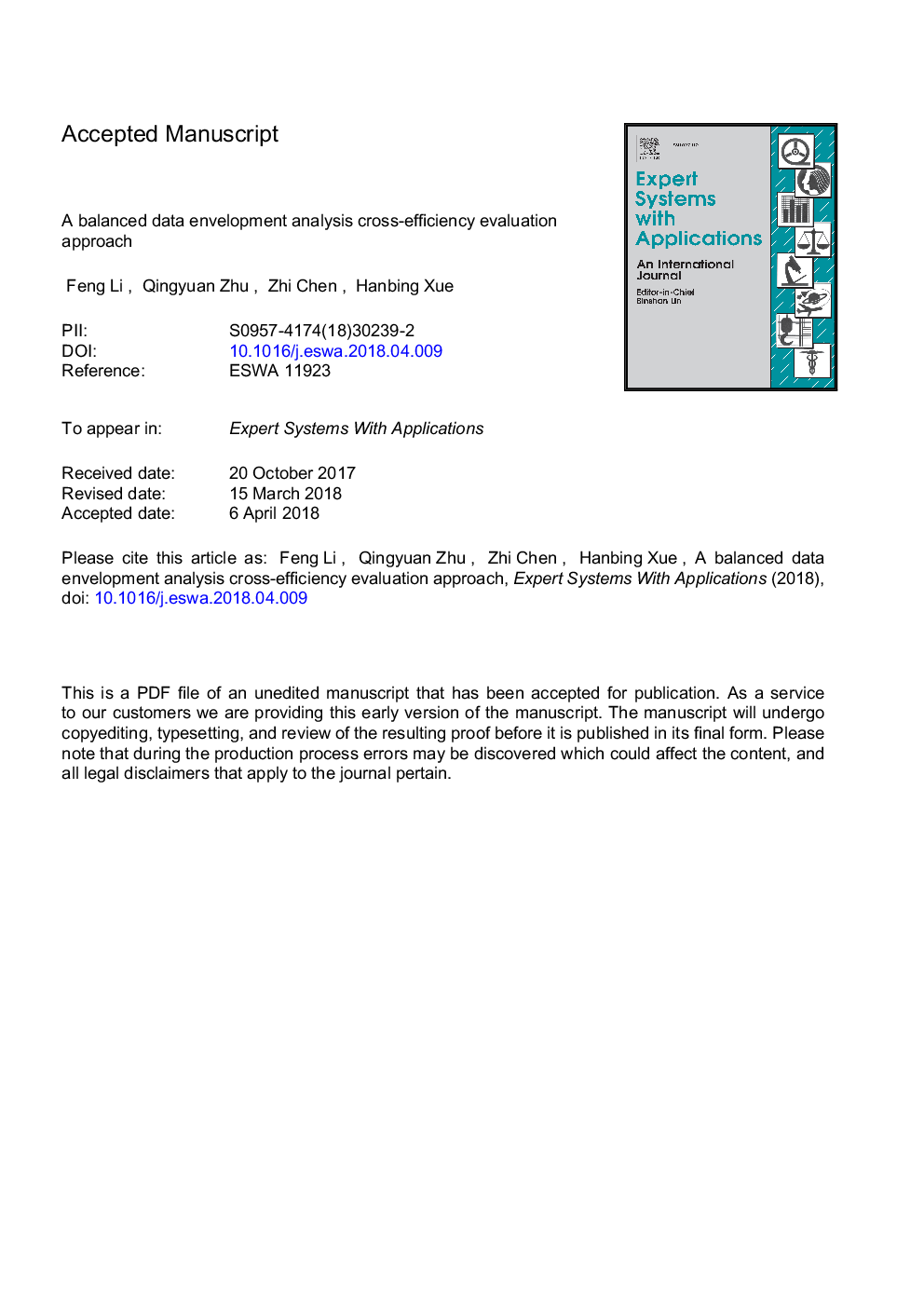ترجمه فارسی عنوان مقاله
یک رویکرد ارزیابی روابط کارآزمایی تجزیه و تحلیل پوشش داده های متوازن
عنوان انگلیسی
A balanced data envelopment analysis cross-efficiency evaluation approach
| کد مقاله | سال انتشار | تعداد صفحات مقاله انگلیسی |
|---|---|---|
| 88128 | 2018 | 42 صفحه PDF |
منبع

Publisher : Elsevier - Science Direct (الزویر - ساینس دایرکت)
Journal : Expert Systems with Applications, Volume 106, 15 September 2018, Pages 154-168

